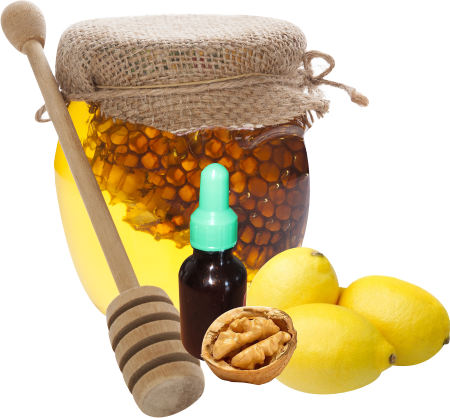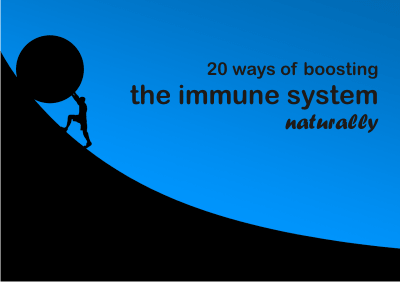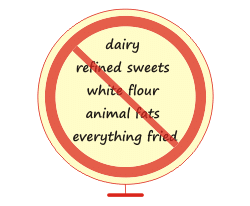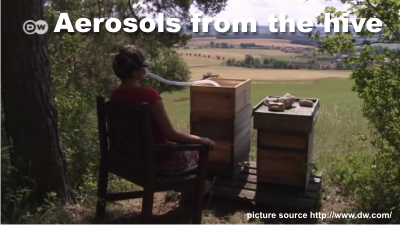It’s cold outside. Too cold for me. Is there anything that can protect us from colds? And stimulate our immunity?
After two weeks of kindergarten every child in the neighborhood has got a cold. Another couple of weeks and we’ll have the flue. And then another flue. From a different germ. The same old detestable situation of every autumn.
I hate being sick.
So, here is a recipe I found at my honey provider. He said it’s his family’s secret. But seeing how miserable I looked, he felt sorry and disclosed it. Lucky me. And lucky everyone reading this, because I will not keep it only for myself.
So here it is:
- 800 g raw honey
- 30 ml propolis tincture
- 1 lemon juice
- 2 mugs of minced walnuts
Put the honey in a bigger jar (of 1.5 kg or even 2 kg). Add the propolis tincture and the fresh juice of a lemon. Stir them. Add the minced walnuts and mix them all very well. Cap the jar and store it in the refrigerator.
TIP: if you have a really bad cold and want to make this remedy even stronger, you can add several garlic cloves, finely chopped. (But a child will not be very happy with the taste.)
How to take it:
Adults: 1 tablespoon in the morning and 1 tablespoon in the evening
Children 3+: 1 teaspoon in the morning and 1 teaspoon in the evening

Why propolis?
While everybody seems to already know about the benefits of honey for our health, there are plenty of us who are very reluctant when talking about propolis. It is indeed more difficult to take propolis that it is to take honey or bee pollen. But once we understand its major benefits, we will try to make a habit from having it, at least as a preventative measure. After all, it represents the only medicine honey bees have. They use it to seal their hive from enemies and to heal themselves. Apitherapy consider it to be a powerful natural antibiotic, used from the ancient times to treat almost everything, from infections to cancer. See here some of the articles wrote on it:
- Propolis
- Composition of propolis
- Propolis: a natural treatment for oral health
- Propolis is one of the best rejuvenate skin care products
- Propolis treats otorhinolaryngologic and respiratory diseases
- Forms of bee propolis: ointment, pills, essence, spray, syrup, toothpaste and?
- Propolis protects liver, has anti-radiation effect, boosts immunity and has anti-inflamatory activity.
- How to take propolis tincture? Here is some folk medicine.
- Is propolis antibacterial? Can it kill bacteria, viruses, fungi or parasites?
- Is propolis antibacterial? Can it kill bacteria, viruses, fungi or parasites?
- Propolis can prevent and treat LEUKEMIA and CANCER
- Brazilian Green Propolis health benefits
- How to make propolis tincture
Why walnuts?
Autumn is the season of walnuts. Nature doesn’t do anything at random, nuts are ripe now to offer us the maximum nutrition and protection for the winter. The article Honey and walnuts health benefits: treat anemia, stomach ulcers, high blood pressure. And make a reliable aphrodisiac! reveals all good health benefits of this wonder food.
I summarize here some of them:
– lowers the inflammation in skin diseases like psoriasis and eczema – lowers the inflmmations, due to the high concentrations of good fats;
– lowers cholesterol and the risk of cardiovascular diseases;
– prevents cancer and treats viral and bacterial infections;
– boost immune system;
– promote better cognitive function;
– reduces the risk of Alzheimer’s disease by arresting the formation of the amyloid plaques that are found in the brains of patients who suffer from this debilitating disease;
– prevents erratic heart rhythms and regulate plaque formation in blood vessels;
– reduces depression and ADHD;
– maintains the health of the bones – due to Omega-3 and manganese;
– prevents gallstones (especially in women);
– treats insomnia;
– has a laxative effect;
– improves the health of hair;
– kills intestinal parasites and tapeworms;
– helps in ensuring proper functioning of the thyroid gland;
– aids in weight loss as these nuts give us a feeling of fullness and reduce our food cravings;
– helps in asthma and rheumatoid arthritis decreasing the inflammation.
But if you are unlucky and are allergic to them, exclude them from this recipe. Pity, though.
Why lemon?
According to WebMD, lemon treats scurvy due to its high content of vitamin C. Lemon is also used for the common cold and flu, H1N1 (swine) flu, ringing in the ears (tinnitus), Meniere’s disease, and kidney stones. It is also used to aid digestion, reduce pain and swelling (inflammation), improve the function of blood vessels, and increase urination to reduce fluid retention.
As sore as it is, according to new studies, the lemon is the most alkalizing food of all. The fact that a food is acid or alkaline has nothing to do with the alkaline forming tendency in the body. Thus while fruits are expected to have an acidifying effect on the body, the citric acid they contain actually has an alkalizing effect in the system.
If you are interested in what are the foods that are alkalizing in the body, here is a list:
· Alkalining Vegetables: Beets, Broccoli, Cauliflower, Celery, Cucumber, Kale, Lettuce, Onions, Peas, Peppers, Spinach
· Alkalizing Fruits: Apple, Banana, Berries, Cantaloupe, Grapes, Melon, Lemon, Orange, Peach, Pear, Watermelon
· Alkalizing Protein: Almonds, Chestnuts, Tofu
· Alkalizing Spices: Cinnamon, Curry, Ginger, Mustard, Sea Salt


Why honey?
Well, this site is almost all about honey. Do a search on whatever interests you. 🙂
Other recipes?
For other recipes that make therapeutic remedies, please see the series of articles wrote on how to treat colds, flue, coughs and other bad things that happen mostly in autumn.
- Cold remedies with honey
- Lemon-Garlic-Honey for colds and immunity
- The best natural remedies for colds – summary
- The best natural remedies for colds – part 1
- The best natural remedies for colds – part 2
- The best natural remedies for colds – part 3
- The best natural remedies for colds – part 4
|
|
References:
http://www.acidalkalinediet.net/alkaline-foods.php
http://lataifas.ro/retete-naturiste/54294/bomba-de-sanatate-propolis-nuca-lamaie-si-miere/




